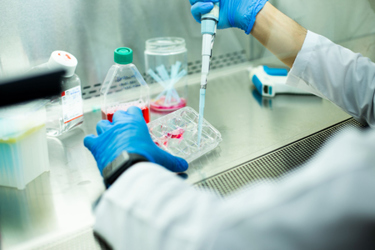A Standardized T Cell Backbone Panel For Immune Monitoring Of Adoptively Transferred Cellular Therapies
By Christine Hauther, Sarah Neely, Leanne Flye, Alan Lackey, and Yoav Peretz

Adoptive cell therapies (ACT) offer significant potential for treating cancer and autoimmune diseases by harnessing the immune system. However, their clinical success is hindered by variable patient responses and limited persistence of infused cells. A comprehensive understanding of immune cell profiles before and after infusion is essential to identify key factors that influence cell persistence and positive clinical outcomes.
To address this need, we developed and validated a 22-marker flow cytometry panel for deep immune profiling, aimed at identifying biomarkers that impact ACT efficacy. This panel enables the characterization of naive, memory, and effector T cell subsets, regulatory T cells, activation/exhaustion markers, and quiescent cells with proliferative capacity. It includes markers for ACT detection, viability, and key immune features (CD3, CD4, CD8, CD25, CD28, CD39, CD62L, CD69, CD45, CD45RA, CD95, CD127, CD134, CD137, CD197, CD223, CD278, CD279, CD366, and HLA-DR). Currently, we report cell frequencies and event counts, with future integration of a dual-platform CD45 Trucount and quantitation standards to enable absolute cell counts per microliter and equivalent reference fluorophore (ERF) quantification for checkpoint markers.
The panel’s modular design allows for seamless incorporation of ACT-specific detection reagents for emerging therapies while maintaining performance in specificity, sensitivity, and spillover characteristics. Critically, this panel facilitates the phenotyping of both native immune cells and adoptively transferred cell therapies before and after infusion, providing valuable insights to optimize ACT outcomes.
Get unlimited access to:
Enter your credentials below to log in. Not yet a member of Cell & Gene? Subscribe today.
